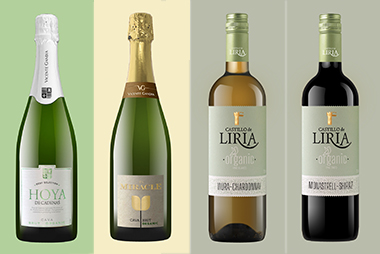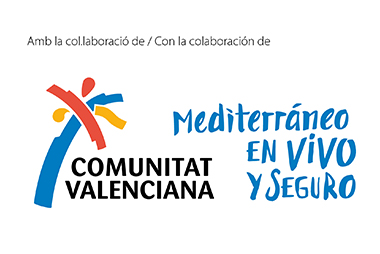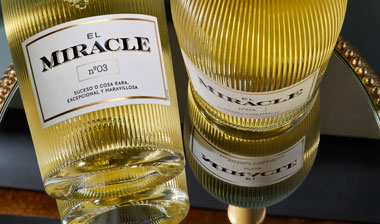We all know that drinking wine in moderation is beneficial. In the past the gods claimed, either by intuition or experience, but not for any scientific reasons, that wine was a drink of the gods.
If we look at it from a scientific point of view, we can say that the benefits of wine are that:
It slows ageing:
Paul Schimmel, researcher, teacher and member of the Scripps Biological Research Institute (TSRI) in California, states that «Resveratrol, one of the ingredients in red wine, activates protective genes that limit cell stress and repair DNA, thus prolonging life».
Mathew Sajish, author of the study and researcher at Schimmel’s laboratory, also states that consuming a couple of glasses of red wine gives the person enough Resveratrols to protect them.
This study was published online by the magazine «Nature» on 22 December 2014.
It prevents heart attacks and heart disease.
Immidiet conducted a study published in the American Journal of Clinical Nutrition, which examined 1,600 adults in London, Italy and Belgium, and reached the following conclusion:
Those who drink wine in moderation had high levels of omega-3 fatty acid (common among those who eat oily fish) in their blood, which is due to one of the components of the wine, polyphenol.
Omega-3 prevents the formation of plaque inside the blood vessels, protecting us from cardiovascular diseases. It reduces blood pressure and therefore prevents myocardial infarction.
It is beneficial for dental health and prevents tooth decay.
The Research Institute of Food Science of the Autonomous University of Madrid conducted a study (published in the Journal of Agricultural and Food Chemistry), according to which the polyphenols in the wine (natural antioxidants) reduce bacteria in the gums and teeth and consequently help prevent tooth decay.
Eliminates body fat
Noemí Arias Rueda, researcher with the Nutrition and Obesity group at the University of the Basque Country, in her doctoral thesis «Effects of the combination of biomolecules present in food, conjugated linoleic acid, resveratrol and quercetin, on the accumulation of body fat» states that resveratrol and quercetin, molecules that are in many plant foods and beverages, reduce body fat.
Activates the immune system.
The Department of Metabolism and Nutrition of the Institute of Food Science, Technology and Nutrition (ICTAN) in Madrid agrees with the claim that ethanol modulates the immune system.
Drinking alcohol moderately can be beneficial for the immune system. The polyphenols contained in the wine contribute to this.
It palliates the effects of a sedentary life.
The Faseb Journal published an investigation, according to which the resveratrol of the grape palliates the negative effects that a sedentary life has on the body.
We experimented with a group of rats that lived in a sedentary environment, with limited movement. One section of the group was given resveratrol and the other was not. The animals that had not taken resveratrol experienced decreased mass and muscle strength, as well as bone weakness.
Gerald Weissman, editor-in-chief of this journal, states that resveratrol cannot replace exercise but does reduce deterioration in the event that a person is in a resting position.[:en]We all know that drinking wine in moderation is beneficial. In the past the gods claimed, either by intuition or experience, but not for any scientific reasons, that wine was a drink of the gods.
If we look at it from a scientific point of view, we can say that the benefits of wine are that:
It slows ageing:
Paul Schimmel, researcher, teacher and member of the Scripps Biological Research Institute (TSRI) in California, states that «Resveratrol, one of the ingredients in red wine, activates protective genes that limit cell stress and repair DNA, thus prolonging life».
Mathew Sajish, author of the study and researcher at Schimmel’s laboratory, also states that consuming a couple of glasses of red wine gives the person enough Resveratrols to protect them.
This study was published online by the magazine «Nature» on 22 December 2014.
It prevents heart attacks and heart disease.
Immidiet conducted a study published in the American Journal of Clinical Nutrition, which examined 1,600 adults in London, Italy and Belgium, and reached the following conclusion:
Those who drink wine in moderation had high levels of omega-3 fatty acid (common among those who eat oily fish) in their blood, which is due to one of the components of the wine, polyphenol.
Omega-3 prevents the formation of plaque inside the blood vessels, protecting us from cardiovascular diseases. It reduces blood pressure and therefore prevents myocardial infarction.
It is beneficial for dental health and prevents tooth decay.
The Research Institute of Food Science of the Autonomous University of Madrid conducted a study (published in the Journal of Agricultural and Food Chemistry), according to which the polyphenols in the wine (natural antioxidants) reduce bacteria in the gums and teeth and consequently help prevent tooth decay.
Eliminates body fat
Noemí Arias Rueda, researcher with the Nutrition and Obesity group at the University of the Basque Country, in her doctoral thesis «Effects of the combination of biomolecules present in food, conjugated linoleic acid, resveratrol and quercetin, on the accumulation of body fat» states that resveratrol and quercetin, molecules that are in many plant foods and beverages, reduce body fat.
Activates the immune system.
The Department of Metabolism and Nutrition of the Institute of Food Science, Technology and Nutrition (ICTAN) in Madrid agrees with the claim that ethanol modulates the immune system.
Drinking alcohol moderately can be beneficial for the immune system. The polyphenols contained in the wine contribute to this.
It palliates the effects of a sedentary life.
The Faseb Journal published an investigation, according to which the resveratrol of the grape palliates the negative effects that a sedentary life has on the body.
We experimented with a group of rats that lived in a sedentary environment, with limited movement. One section of the group was given resveratrol and the other was not. The animals that had not taken resveratrol experienced decreased mass and muscle strength, as well as bone weakness.
Gerald Weissman, editor-in-chief of this journal, states that resveratrol cannot replace exercise but does reduce deterioration in the event that a person is in a resting position.
























